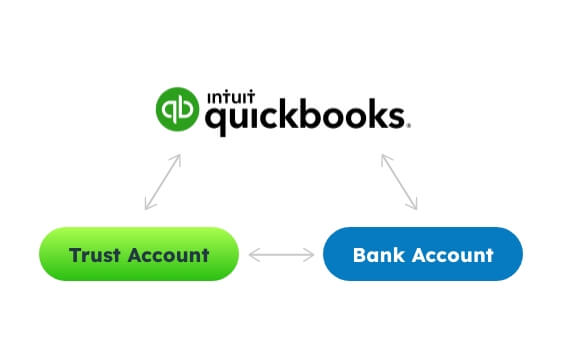
Let’s face it, practicing law, regardless of your area of expertise, has not become easier in recent years.
Though there are numerous factors that contribute to this (the pandemic and the labor shortage to name a few) one of the most commonly cited obstacles for many law firms and their practice management teams is in the area of software technology and how best to implement it into their firm.
In November 2020, the American Bar Association published an article with their findings, after surveying over 50,000 attorneys regarding the technology and software utilized and available in their firms.
The survey showed that close to half of all law firms that currently use some sort of legal practice management software reported only being “somewhat satisfied” with the technology and cloud legal practice management software available and used in their firm.
It went on to conclude that a large number of firms don’t feel that the appropriate practice management software is available for their law firm.
And for those law firms that do have practice management software in place, rather that’s legal practice management for mid sized law firms or legal practice management software for small law firms, there is still a large number of lawyers who don’t elect to use it, or only use parts of it, resulting in money lost in technology that isn’t even being utilized.

The article goes on to share more of their findings about the availability of the best legal practice management software and the legal practice management software reviews based on the size of the law firm.
But the bottom line is this: if your law firm has practice management software in place, but your lawyers and/or staff aren’t using it (or aren’t using it efficiently), then there is a problem.
That said, technology in the workplace, particularly in places like law firms, is here to stay.
As another article in the American Bar Association so eloquently put it:
“To the extent, you have not fully adopted legal technology, get that done.”
Schedule a demo
But that may seem easier said than done, especially if you have invested in legal practice management software that isn’t serving you well, or you are a firm that is still trying to wade through the various options out there.
Let’s dive deeper into these challenges and discover the reasons why traditional legal firm practice management software or even cloud based practice management software is not always going to be the thing that’s going to save your lawyers and staff time, nor is it going to generate more income for your firm than what is going to cost in the long term. Many firms are also now selling web based legal practice management software or online legal practice management software which can seem convenient but come with their own challenges.
And then, let’s look at some alternatives to traditional practice management software legal firms have used in the past that will be the time saver and income booster that you’re looking for.

What Are the “Tech Tools” that Every Law Practice Needs?
One thing that the ever-changing world of technology has taught us is that not all software is the same. And – if you don’t have the right software for what you are trying to achieve, it can be a pointless task of attempting to get your firm onboard with using it.
According to an article on Forrester Research, most IT experts have found that up to two-fifths (42%) of a company’s inability to accurately adopt and utilize their organization’s software technology has to do with the people that will be interacting with it.
If your law firm does not have the right software tools in place to be able to do the things your lawyers and staff need and want to do, then it’s going to be highly unlikely that your cloud based legal practice management software for a legal firm is going to be used to its full potential. Finding a high quality legal billing software can save your firm time and money.
Unfortunately, many popular legal practice management cloud software companies want to sell your law practice a platform that often ends up being more cumbersome to use than it is a benefit to your practice as well as to your clients.
Let’s look at some of the biggest areas where software technology is helping law offices save time and money, and how implementing these areas correctly is going to help your team succeed.
Time and Expense Tracking
Tracking billable hours and invoicing them correctly can be a big part of a law firm’s overall financial success.
Research shows that most lawyers only end up billing for about 30% of their day, spending a good portion of their day focused on other things, such as administrative tasks.
This means that making sure every lawyer in your firm is accurately reporting their billed hours is going to be even more crucial for your firm’s long-term success.
Not only that but removing more administrative tasks from your lawyer’s daily to-do list will also free them up to do what they do best…counsel clients and bill for that time.
But capturing those billable hours can be a tedious task for many lawyers and their support staff if the means by which they are recording them is difficult to navigate or easy to forget about.
Implementing the right software into your firm means that not only will your lawyers be able to better track and record their billable hours, but it also means that they won’t have to worry later about recording or justifying the hours they billed or why.
Remember, legal timekeeping is how most attorneys generate revenue, so if you don’t track your time, you won’t get paid. And if you don’t track your time each day, you will lose serious income.
In fact, this graphic – Billing Increment Chart – LeanLaw – Legal Billing Made Easy – makes this point perfectly clear.
Though this sounds like a pretty straightforward concept, many law practice management software companies don’t make it so. Their time-tracking software often can only be used on one device, or it is muddled in with so many other features that it’s easy to forget to use it.
Others will try to impress with cloud based legal practice management software for law firms that is filled with buzzwords and ultimately means very little to the real efficiency of the product. But certain legal software companies like LeanLaw, prioritize time tracking and make it simple to use.
Legal timekeeping and billing legal software should be prioritized for lawyers and designed to make the billing workflow to be as simple as possible so that tracking and recording time becomes a daily habit, not a constant nuisance.

Matter Management
The term “matter management” usually refers to all activities that are necessary to manage and operate a law firm. From optimizing document management to keeping track of communication between a lawyer and a client, a good matter management system is vital to a lawyer and their law firm staying organized and productive.
But oftentimes managing various tasks like these does not have to be as complicated as many legal practice management systems make it out to be, especially when you looking for the best practice management software for solo lawyer.
And – as with not capturing billable hours correctly – a firm that adopts a matter management system that isn’t easy to use is going to lose hours of productivity, which is going to result in revenue loss as well.
Not only that, but having a complicated matter management system will also decrease your firm’s overall morale. Constantly feeling intimidated by your law practice’s practice management matter management system can leave everyone feeling defeated and incompetent.
The bottom line? When you are looking for the best practice management software legal system, it’s often best to start with what your lawyers and employees already know and customize your next needs from there. Once you understand your firm’s needs, you can be begin the process of legal practice management software comparison, often starting with brand names like Clio legal practice management software.
Integrating a system like LeanLaw into your legal practice means that your lawyers and staff can continue to utilize the matter management systems they are already comfortable with, while also integrating LeanLaw accounting software into their business operations.

Billing and Payments
No business is going to stay in business without an effective billing and payment system.
And law firms are no exception to that.
Once you’ve found a workable solution for capturing all billable hours, making sure that your clients are then being billed correctly is another challenge with which a law firm is faced.
Inaccurate or untimely legal billing can greatly impact a client’s trust in their firm and can also slow down payment significantly.
Though there are always going to be challenges with ensuring that all of your firm’s invoices are paid in a timely manner, taking any roadblocks out of the client’s way is going to make a big difference in the timeline that payments are received.
Finding the right type of accounting software that prioritizes this is going to be a big advantage to your firm’s daily operations and bottom line. It can also save you from hiring more employees through remote legal billing jobs just to manage your administrative tasks.
Giving your client easy-to-read and accurate invoices as well as options in which to pay will go a long way in keeping your receivables current.
When clients are given easy-to-read invoices and easy-to-navigate ways to pay, not only will your firm benefit financially, but your clients will feel as though their legal bills are not an intimidating burden, but more like a task they’ve successfully completed and can move on with their day.
Not only that but imagine the time good legal billing software will free up for your accounting department, reducing the amount of legal billing jobs your team is conducting each day. When they are no longer fielding client phone calls regarding invoices or trying to track down overdue payments that are problematic for their case and your firm.
Reports and Compensation Tracking
Though every law firm is going to have its own way of compensating its lawyers, knowing how to track and report that correctly will be an essential part of your law firm’s success.
By having a customized law practice management legal software system that is capable of implementing your compensation model, you will be able to easily share with each individual their performance levels on a regular basis.
Good report and compensation tracking software will take any of the guesswork out of how each individual’s performance is being tracked and/or how each individual’s compensation is being calculated.
Good tracking software will also allow you to run reports that line up with your firm’s compensation model so you and your team are no longer bouncing between various spreadsheets and dashboards, or trying to navigate numbers that don’t exactly add up.
When you are looking for the best reports and compensation tracing software for your firm, make sure that it is designed to be customizable to your firm’s specific compensation model.
Trust Accounting
Perhaps one of the most unique and complex areas where law firms need to have software designed specifically for the legal industry is in the area of trust accounting.
When a lawyer or law firm receives client funds, it is imperative that those funds are never put into the firm’s operating account.
According to the American Bar Association’s Rules of Professional Conduct, a “lawyer shall hold property of clients or third persons that is in a lawyer’s possession in connection with a representation separate from the lawyer’s own property.”
This means that anytime a law firm receives funds for a client before services have been provided, those funds need to be held in a separate account from the firm’s operating account.
It also means that if a firm receives any payments on behalf of the client, such as a settlement check, those funds must also be held separately from the account that is used to pay operating expenses for the firm.
Though the rule may make sense and sound reasonable, putting it into practice can at times be challenging for a firm, even one that is trying to follow best practices when it comes to client fund management.
There have been plenty of instances where a firm mistakenly deposited a client’s retainer or settlement check into their operating account by mistake. Even if the error is quickly caught, any sort of banking or financial missteps with client funds can result in dire consequences for a lawyer or their firm.
Schedule a demo
Failure to comply with accurate client fund accounting can lead to fines and penalties for the firm and – in some severe cases – disbarment from the state bar association.
Many legal practice management system models don’t put enough emphasis on client fund accounting or three-way reconciliation, which can result in these types of issues for a firm and their lawyers.
Choosing a legal accounting platform like LeanLaw means that your law firm will always be in compliance with industry best practices and state bar standards, two things that should always be a high priority in any software you implement into your law practice.
Not only that, but the more automated the client fund document system, the easier it will be to make sure your practice is managing client funds correctly.

Interested in Learning More About the LeanLaw, the Legal Practice Management Alternative for Your Law Firm?
When you are ready to dive deeper into finding the best software for your law firm, reach out to LeanLaw for help.
There are a number of legal practice management software for large law firms and for small on the market today, and many of them boast features that your firm not only doesn’t need, but may actually be hindered by.
LeanLaw is the perfect law practice management system alternative since it was created by legal professionals who understand the challenges that so many practice management systems can create.
Built as a financial operating system for law firms, LeanLaw allows attorneys and their staff to ensure everything billable is being captured, money flows through the firm properly and reports are always run-ready.
With LeanLaw, information is always accessible and transparent, so firms can operate in a seamless way from anywhere and maximize firm profitability using any practice model.
Our experts also are well-versed in the rules and regulations governing law firms and have created an alternative to the traditional practice management systems that have for so long been difficult to navigate.
From document management to client communications and all forms of task management in between, LeanLaw allows law practices to integrate the LeanLaw software with what their firm is already comfortably using.
Our onboarding team can help interface the old with the new in a seamless way that will give your law firm the tools needed to move your firm forward…while doing it with the confidence and ease needed for your continued success.
Reach out today for a free demo and see what LeanLaw can do for you!





